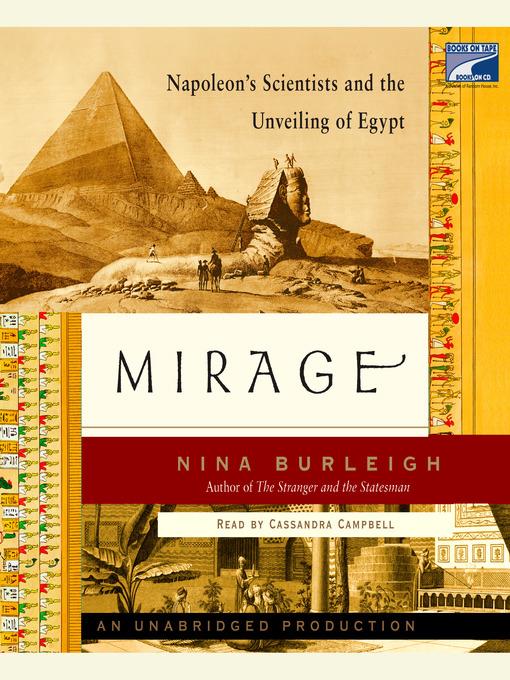
Mirage
Napoleon's Scientists and the Unveiling of Egypt
کتاب های مرتبط
- اطلاعات
- نقد و بررسی
- دیدگاه کاربران
نقد و بررسی

When Napoleon invaded Egypt in 1798, he took along a motley group of scientists and artists, as well as soldiers. While the military battled scimitars, the noncombatants documented the country's present and past. They measured pharaonic monuments, took rubbings of tomb engravings, and made off with the Rosetta Stone. Everyone, meanwhile, fought the heat and dust. Cassandra Campbell reads this entertaining rendition of Egypt's encounter with archaeologists, painters, and engineers with the right balance of seriousness and lightness. Her voice is well modulated. And her studied pace picks up nicely after the first disc, while maintaining commendable clarity. She also delivers the frequent (untranslated) French quotations beautifully. A.C.S. (c) AudioFile 2008, Portland, Maine

March 15, 2008
In 1798, Gen. Napoleon Bonaparte invaded Egypt. Attached to the expedition was an elite group of scientists eager to see strange sights and make great discoveries; Mirage is about their adventures. Neither the scientists nor the troops were prepared for the heat, water shortages, disease, or local uprisings. Still, the naturalists, geologists, engineers, and proto-archaeologists managed to collect an amazing amount of data. While focused on the science core, the book contains detailed descriptions of such diverse topics as Napoleon's military maneuvers, rudimentary excavation practices, selection of concubines, and some particularly creative torture techniques. The facts are fascinating, and the text is well written; unfortunately, it also suffers from significant organizational problems. Statements and sometimes whole paragraphs are repeated in different chapters. Keeping track of who did what, where, and when is difficult. And while tortures, for example, are described in nasty detail, actual scientific discoveries (as opposed to collection descriptions) are glossed over. Cassandra Campbell does a fine reading job and seems to enjoy pronouncing the often complicated French names. Despite the organizational issues, this is a satisfying book. Recommended for all but the smallest public and academic libraries.I. Pour-El, Des Moines Area Community Coll., Boone, IA
Copyright 2008 Library Journal, LLC Used with permission.

























دیدگاه کاربران